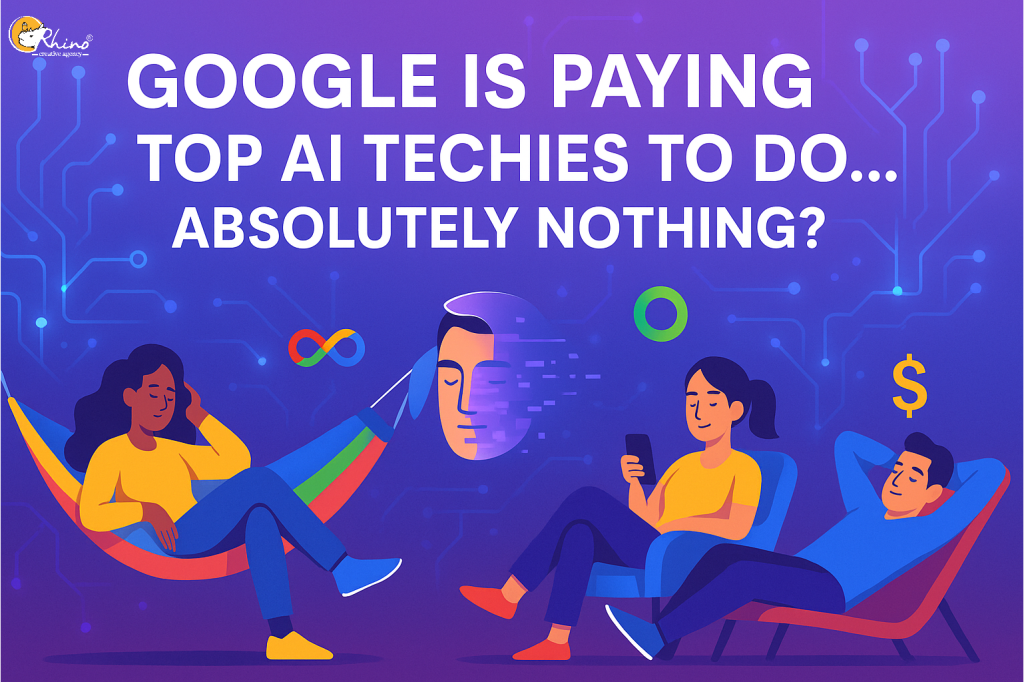Google Paying Top AI Techies to Do… Absolutely Nothing?
Introduction
Amid escalating competition in the AI landscape, a striking trend has emerged: Google is reportedly paying some of its AI staff—particularly at DeepMind in the UK—to do nothing for up to a year. This surprising practice is tied to non-compete agreements and “extended garden leave” schemes that effectively pause employees’ ability to work for rivals, even while they remain on payroll.
What’s Going On?
- Extended Garden Leave with Pay
Reports—citing insiders and Business Insider—highlight that certain AI engineers who depart or are transitioning away from DeepMind are placed on paid “garden leave.” For durations up to 12 months, they receive compensation but are barred from working for competitors like OpenAI or Microsoft. - Selective Enforcement to Protect Sensitive Projects
Google has emphasized that these non-compete agreements are used selectively, particularly around employees involved in critical, strategic AI work—like the development of the Gemini model.
Why Is Google Doing This?
- Battle to Retain Talent Amid the AI Arms Race
With intense competition from players like OpenAI and Microsoft, retaining top AI researchers—and preventing them from joining rivals—is a strategic priority. Having them sit idle ensures that their expertise remains inaccessible to competitors. - Preventing Knowledge Transfer
These agreements act as a firewall against brain drain—especially for those working on Google’s flagship models and projects.
The Human Cost
- Career Stalemate & Innovation Lag
The AI field evolves at breakneck speed, and being forced to sit out—even with pay—can feel like career sabotage. A former DeepMind researcher laments, “A year is forever in the world of AI.“ - Public Criticism
Microsoft’s VP of AI, Nando de Freitas (also a former DeepMind director), has voiced strong opposition. On social media, he urged, “Don’t sign these contracts. No American corporation should have that much power… It’s abuse of power.”
Google’s Defense
Google maintains that its practices align with market norms and are designed to protect its legitimate business interests. They emphasize selective application and fairness in crafting these agreements.
Broader Implications
- Ethical and Innovation Concerns
Critics argue that this reinforces a “gilded cage” approach—prioritizing corporate strategy over innovation and individual growth. - Compliance Across Jurisdictions
These practices highlight how labor laws differ globally. In the U.S., many non-competes are outlawed or heavily restricted, while in the UK they remain enforceable under certain conditions.
Conclusion
In essence, Google’s policy—paying top AI engineers to stay idle—serves as a strategic tool in the fierce AI talent war. While it may shrewdly competition, it also spotlights a potentially harmful trade-off: sacrificing individual researchers’ momentum and morale in the quest to secure corporate advantage. As AI races ahead, the debate intensifies: should the industry prioritize people’s careers and innovation, or corporate defense?

